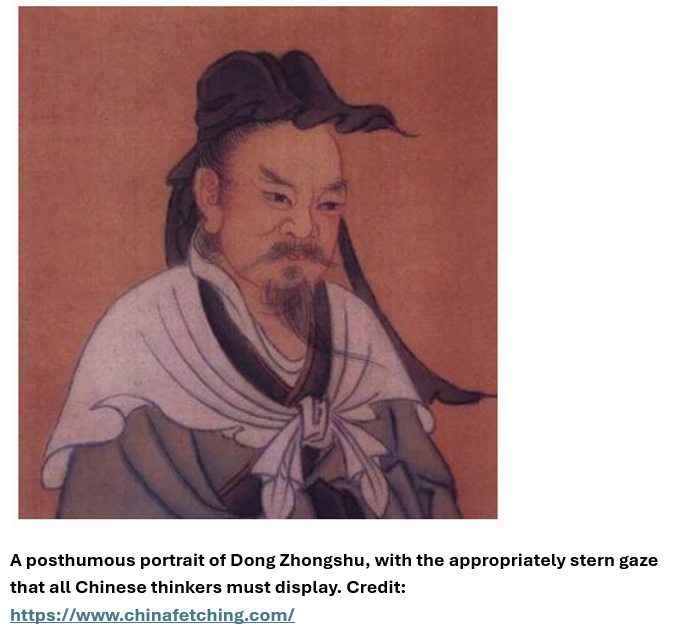To check all previous newsletters in the History of Mankind, which is pretty long, you can click here.
The family of the tenacious widow Lu Zhi wasn’t around to take part in discussions and earthly entertainments for long, though. After she died of illness at the age of 61, much of her clan was massacred in what Chinese historians, with exquisite detachment, call the “Lu Clan Disturbance.”
A new court was formed around the killers of the previous high-ranking courtiers, attracting the likes of Sima Xiangru, an upper-class musician and poet (179-117 BC) who essentially created classical Chinese recitation, eventually receiving imperial patronage after much effort. And it was his contemporary Dong Zhongshu (179-104 BC), creator of a renewed concept of a Mandate of Heaven that justified Han rule, who made the biggest impact in the new imperial court.
Dong Zhongshu entered the imperial service during the reign of Emperor Jing (157-141 BC), a grandson of Liu Bang but already the sixth Han emperor, after much turnover on the throne. His father, Emperor Wen, had become well-known for his frugality, and the fact that he had to preside over the execution of his predecessor and nephew, Emperor Houshao, seen as a puppet of the disgraced Lu clan.
Emperor Jing’s reign was shaky, and his entire dynasty came close to collapse during the Rebellion of the Seven States, when tributary kingdoms from eastern and northern China attached to the empire came together to once again try to turn the clock back to the Warring States era. The dynasty did survive, however, and Dong Zhongshu with it.
Keep reading with a 7-day free trial
Subscribe to A History of Mankind to keep reading this post and get 7 days of free access to the full post archives.




